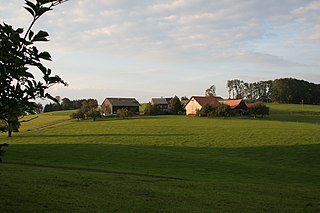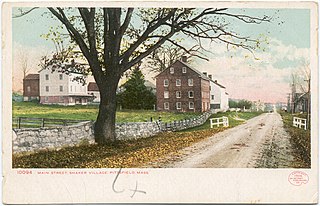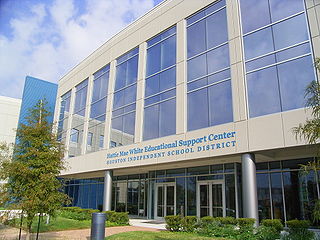Related Research Articles

Clackamas County is one of the 36 counties in the U.S. state of Oregon. As of the 2020 census, the population was 421,401, making it Oregon's third-most populous county. Its county seat is Oregon City. The county was named after the Native Americans living in the area, the Clackamas people, who are part of the Chinookan peoples.

Mount Hood Village is the name of a census-designated place (CDP) within the Mount Hood Corridor in Clackamas County, Oregon, United States. As of the 2010 census, the CDP had a population of 4,864. The Villages at Mount Hood is the name of the combined government of several of the communities encompassed by the CDP and is a separate entity.
A civil township is a widely used unit of local government in the United States that is subordinate to a county, most often in the northern and midwestern parts of the country. The term town is used in New England, New York, and Wisconsin to refer to the equivalent of the civil township in these states; Minnesota uses "town" officially but often uses it and "township" interchangeably. Specific responsibilities and the degree of autonomy vary in each state. Civil townships are distinct from survey townships, but in states that have both, the boundaries often coincide and may completely geographically subdivide a county. The U.S. Census Bureau classifies civil townships as minor civil divisions. Currently, there are 20 states with civil townships.

A hamlet is a human settlement that is smaller than a town or village. Its size relative to a parish can depend on the administration and region. A hamlet may be considered to be a smaller settlement or subdivision or satellite entity to a larger settlement.

The administrative divisions of New York are the various units of government that provide local services in the U.S. State of New York. The state is divided into boroughs, counties, cities, towns, and villages. They are municipal corporations, chartered (created) by the New York State Legislature, as under the New York State Constitution the only body that can create governmental units is the state. All of them have their own governments, sometimes with no paid employees, that provide local services. Centers of population that are not incorporated and have no government or local services are designated hamlets. Whether a municipality is defined as a borough, city, town, or village is determined not by population or land area, but rather on the form of government selected by the residents and approved by the New York State Legislature. Each type of local government is granted specific home rule powers by the New York State Constitution. There are still occasional changes as a village becomes a city, or a village dissolves, each of which requires legislative action. New York also has various corporate entities that provide local services and have their own administrative structures (governments), such as school and fire districts. These are not found in all counties.

An American Viticultural Area (AVA) is a designated wine grape-growing region in the United States, providing an official appellation for the mutual benefit of wineries and consumers. Winemakers frequently want their consumers to know about the geographic pedigree of their wines, as wines from a particular area can possess distinctive characteristics. Consumers often seek out wines from specific AVAs, and certain wines of particular pedigrees can claim premium prices and loyal customers. If a wine is labeled with an AVA, at least 85% of the grapes that make up the wine must have been grown in the AVA, and the wine must be fully finished within the state where the AVA is located.

Boring is an unincorporated community in Clackamas County, Oregon, United States. It is located along Oregon Route 212 in the foothills of the Cascade mountain range, approximately twelve miles (19 km) southeast of downtown Portland, and fourteen miles (23 km) northeast of Oregon City. A bedroom community, Boring is named after William Harrison Boring, a Union soldier and pioneer whose family built a farm in the area in 1856, before Oregon had received statehood.
Beavercreek is an unincorporated hamlet and census-designated place in Clackamas County, Oregon, United States, located 6 miles (10 km) southeast of Oregon City. The population was 4,485 at the 2010 census.

Damascus is a census-designated place and former city in Clackamas County, Oregon, United States. Established in 1867, it was incorporated in 2004 in an effort to enable local land use decision-making control by the community. Its residents voted to disincorporate in 2016, and, after a legal challenge, its disincorporation was completed in 2020. Damascus is located east of Happy Valley and Interstate 205 and west of Boring. The population was 10,539 residents as of the 2010 census.
Most U.S. states and territories have at least two tiers of local government: counties and municipalities. Louisiana uses the term parish and Alaska uses the term borough for what the U.S. Census Bureau terms county equivalents in those states. Civil townships or towns are used as subdivisions of a county in 20 states, mostly in the Northeast and Midwest.
A village in the U.S. state of Oregon is a model of local governance that as of 2006 only exists in Clackamas County. Like villages elsewhere, it is a subnational entity; like New York's villages, the definition is unique to a state.
A municipal council is the legislative body of a municipality or local government area. Depending on the location and classification of the municipality it may be known as a city council, town council, town board, community council, rural council, village council, or board of aldermen.

Mulino, Oregon is a hamlet and census-designated place (CDP) located in Clackamas County, Oregon, United States, on Oregon Route 213 between the cities of Oregon City and Molalla. As of the 2010 census it had a population of 2,103.

Stafford is an unincorporated community, classified as a hamlet, in Clackamas County, Oregon, United States. It is a census-designated place (CDP), with a population of 1,577 as of the 2010 census. The community covers approximately 15.7 km2 located in a rough triangle south of Lake Oswego, east of Tualatin, and west of West Linn. Students in the area attend the schools of the West Linn-Wilsonville School District.

In the United States, the meaning of village varies by geographic area and legal jurisdiction. In many areas, "village" is a term, sometimes informal, for a type of administrative division at the local government level. Since the Tenth Amendment to the United States Constitution prohibits the federal government from legislating on local government, the states are free to have political subdivisions called "villages" or not to and to define the word in many ways. Typically, a village is a type of municipality, although it can also be a special district or an unincorporated area. It may or may not be recognized for governmental purposes.

An independent school district (ISD) is a type of school district in some US states for primary and secondary education that operates as an entity independent and separate from any municipality or county, and only under the oversight of the respective state government. As such, the administrative leadership of such districts is selected from within the district itself and has no direct responsibility to any other governmental authority. This independence normally also implies that the district has its own taxing authority that is outside the direct control of other governmental entities.
Local government in New Jersey is composed of counties and municipalities. Local jurisdictions in New Jersey differ from those in some other states because every square foot of the state is part of exactly one municipality; each of the 564 municipalities is in exactly one county; and each of the 21 counties has more than one municipality. New Jersey has no independent cities, or consolidated city-counties.
Molalla Prairie is an unincorporated community of approximately 3,500 residents in Clackamas County, Oregon, United States. The community is located south of Molalla.

The 81st Oregon Legislative Assembly was the legislative session of the Oregon Legislative Assembly that convened on January 11, 2021 and adjourned June 26th. Its even-year short session of 35 days convened on February 1, 2022 and adjourned sine die on March 4, 2022.
References
- ↑ "Complete Communities". Clackamas County. Archived from the original on May 7, 2010. Retrieved May 26, 2010.
- Sources
- Gragg, Randy (May 11, 2007). "It Takes a Village to Raise a Voice". The Oregonian. pp. B1, B5.